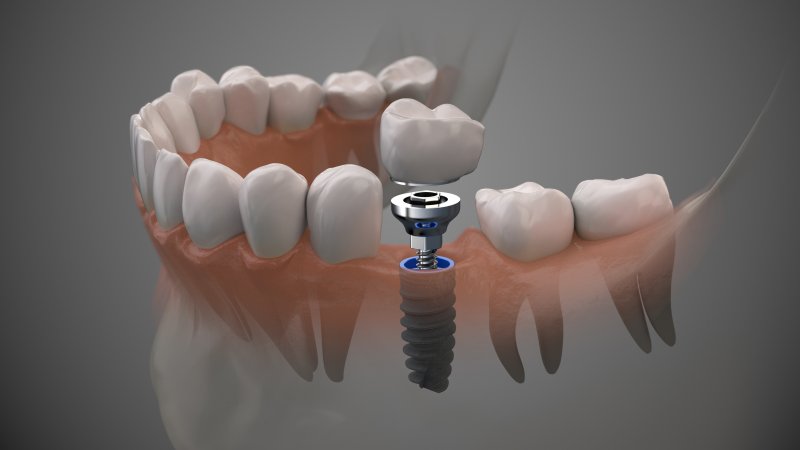
Dental implants are often made of titanium, which is a type of metal. Its ability to fuse with the jawbone and its surrounding tissues are just a few of the reasons so many dentists use it to create the foundation of a person’s new smile. But can these root-like structures ever rust? Is this a problem patients should be concerned about? Keep reading to find out why it’s highly unlikely a dental implant will ever corrode.
Is Dental Implant Corrosion Possible?
In short, yes. Is it likely? No. The reason is that titanium is a type of metal that doesn’t contain iron – a mineral that is known to oxidize anytime it is exposed to water or general moisture. Dental implants made of other similar metals such as gold and stainless steel do contain iron.
Although it’s highly unlikely that your dental implants will rust over time, it’s not entirely out of the question. The reason is that the longer you wear your implants, the more moisture these metals are exposed to. Over time, it is possible that corrosion can occur; however, there are very few individuals who require replacement as a result.
What Methods Can Be Used to Minimize the Risk of Rusting?
Taking care of your smile is the top priority, whether you’re concerned about rust, peri-implantitis, or any other potentially problematic oral health issue.
To minimize rust and problems developing inside the mouth, you’ll need to make sure that you’re practicing good oral hygiene. This means brushing twice daily for two minutes, flossing before bed, and rinsing with an antimicrobial mouthwash.
You’ll also want to keep your regular dental exams and teeth cleanings every six months as well as eat a nutritious diet. Too many acidic foods and beverages can increase the chances of rust forming on your dental implants.
Are There Other Alternatives to Metal Dental Implants?
Yes, other materials can be used to craft dental implants and fully remove any cause for corrosion. Ceramic (zirconia) implants contain no metal, so you can worry less about the potential for rust.
With no electrical currents being conducted through these implants, they cannot corrode over time even when exposed to moisture.
What really matters is that it is unlikely you will need to worry about dental implant rust. Instead, you can enjoy your new appearance knowing that the foundation of your pearly whites is properly fused and in optimal shape to support your beautiful, healthy, and fully functional smile.
About the Authors
Dr. Sivan Patel is a native of Des Plaines and earned his dental degree from the Boston University Goldman School of Dentistry in 2009. Working alongside Dr. Amir Danesh Sani, who received his postdoctoral training in periodontology and implant dentistry at New York University, the two work to rebuild and repair smiles. Using dental implants to replace missing teeth, our team can deliver factual statistics and evidence that promote better oral health and well-being with these prosthetics, so contact us at (847) 297-0808 to find out how you can get started.


